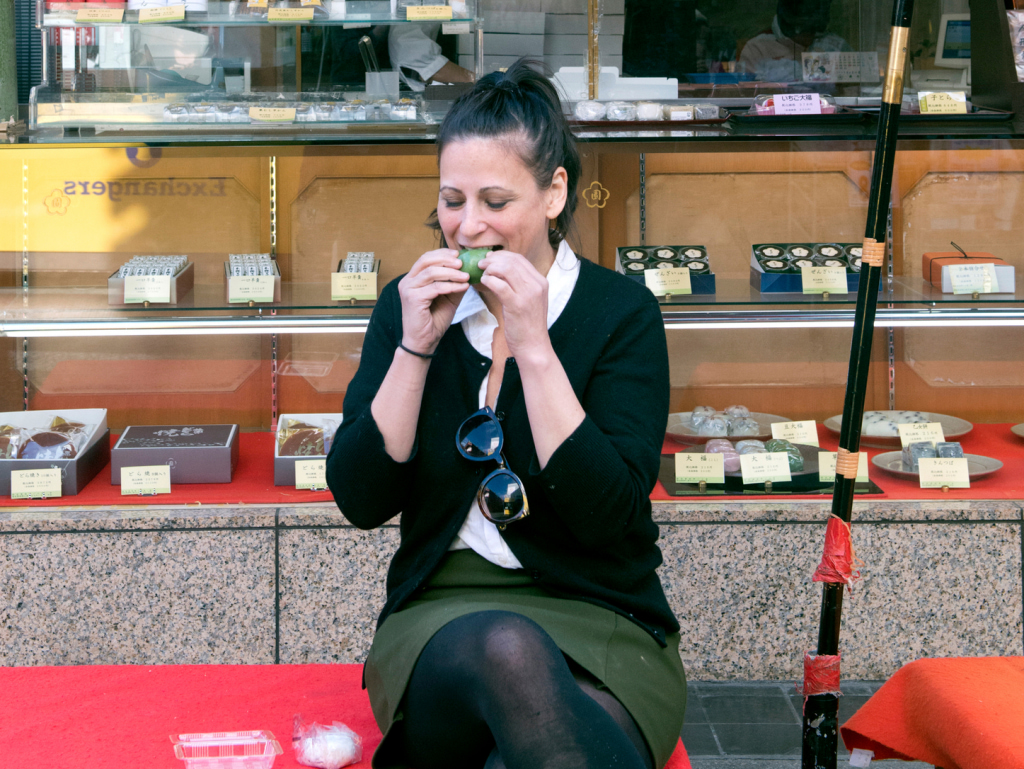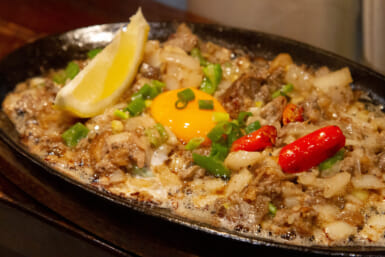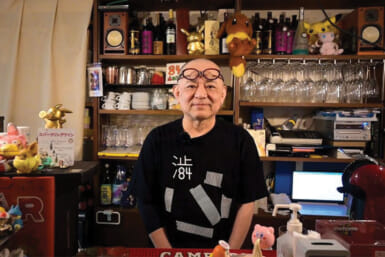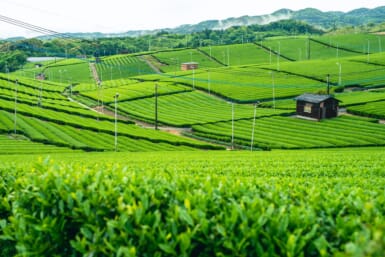Chef Amanda Cohen knows her vegetables. The founder of Dirt Candy, an award-winning vegetarian restaurant in New York City, she has found delicious success by putting vegetables front and center. So, it’s no surprise that during a recent visit to Tokyo, she thoroughly probed the world of vegetarian dining options.
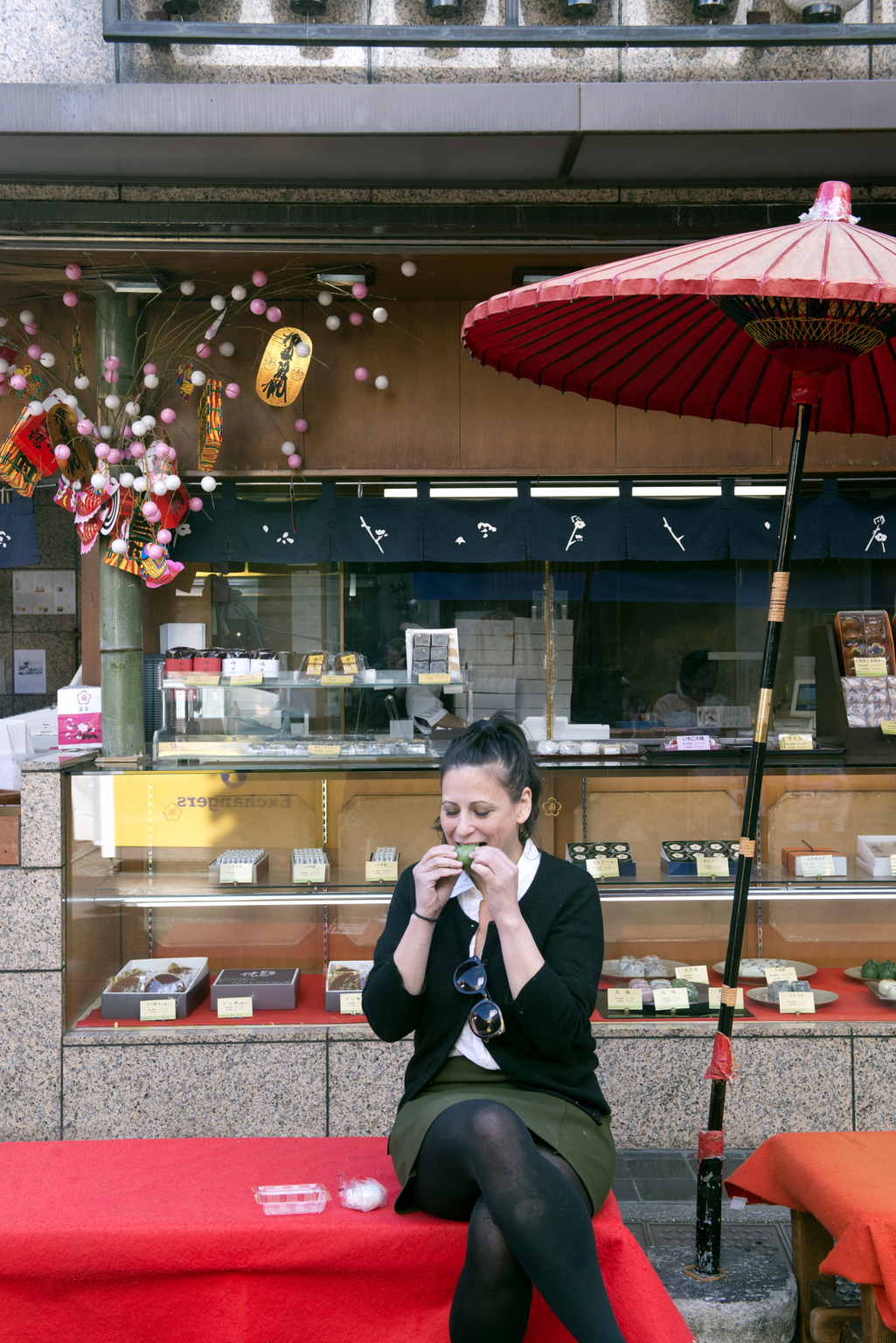
Enjoying a bite of traditional sweets at Umezono in Asakusa.
From Ramen to Monjayaki
During her week-long stay, sponsored in part by the Tokyo Visitors and Convention Bureau, Cohen stepped through the doors of izakaya, ramen shops, soba restaurants and fruit parlors. She dined on kaiseki dishes, traditional sweets, monjayaki (a soupy version of okonomiyaki), vegan burgers, Japanese curry, and various forms of tofu. Cohen even managed to sip a few veggie-based cocktails deep in the heart of Shinjuku.
“One of the things I found throughout the trip was a real respect for food,” Cohen said. “I mean going to the farmers market and seeing how beautiful the vegetables were grown and going to the Toyosu market and seeing the care the fish and vegetables were chosen with was amazing.”
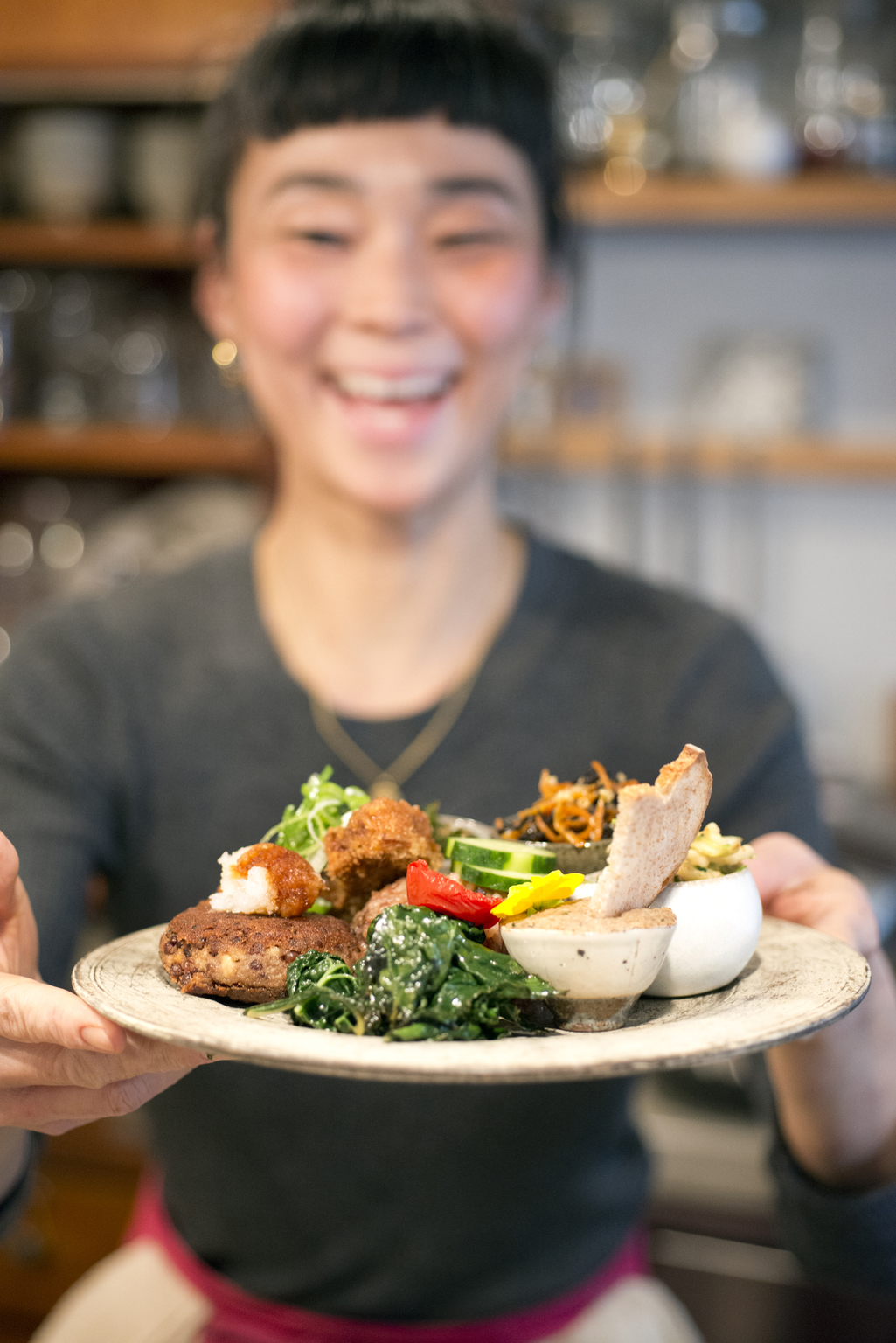
Chef and owner Keiko Seto of Mique in Higashigaoka, Meguro City, presents her delightful fare.
Finding Vegetarian & Vegan Japanese Cuisine
While vegetarian and vegan food is historically and culturally a part of Japanese cuisine, such as shojin ryori, the traditional vegetarian fare of Buddhist monks, it is still challenging to find outside of Indian or Italian restaurants. This is a scenario Cohen has experienced before. Vegetarian herself until about 15 years ago, she switched to a more omnivore diet when she tired of the options offered to her.
“At the time,” Cohen recalled, “the options were a grilled Portobello, some couscous, and a red pepper coulis, and I just couldn’t have one more meal like that. So, I thought if I wanted to become a better chef, I have to learn what other chefs really appreciate, which at that time was meat.”
Yet, she never lost her love of vegetables and determination to showcase them. Her philosophy is to give vegetables a starring role rather than serve them as a charming side dish. For Cohen, it comes down to how chefs and eaters think about the dishes themselves, and she sees a strong possibility for changing that mindset in Japan.
“Japanese cuisine seems so hospitable to vegetarian food,” Cohen observed. “But the idea that you can make anything vegetarian doesn’t seem to have quite taken on like it has in the US. Ten years ago, people used to come to my restaurant saying they could never eat a vegetarian meal, but now that idea is pretty common.”
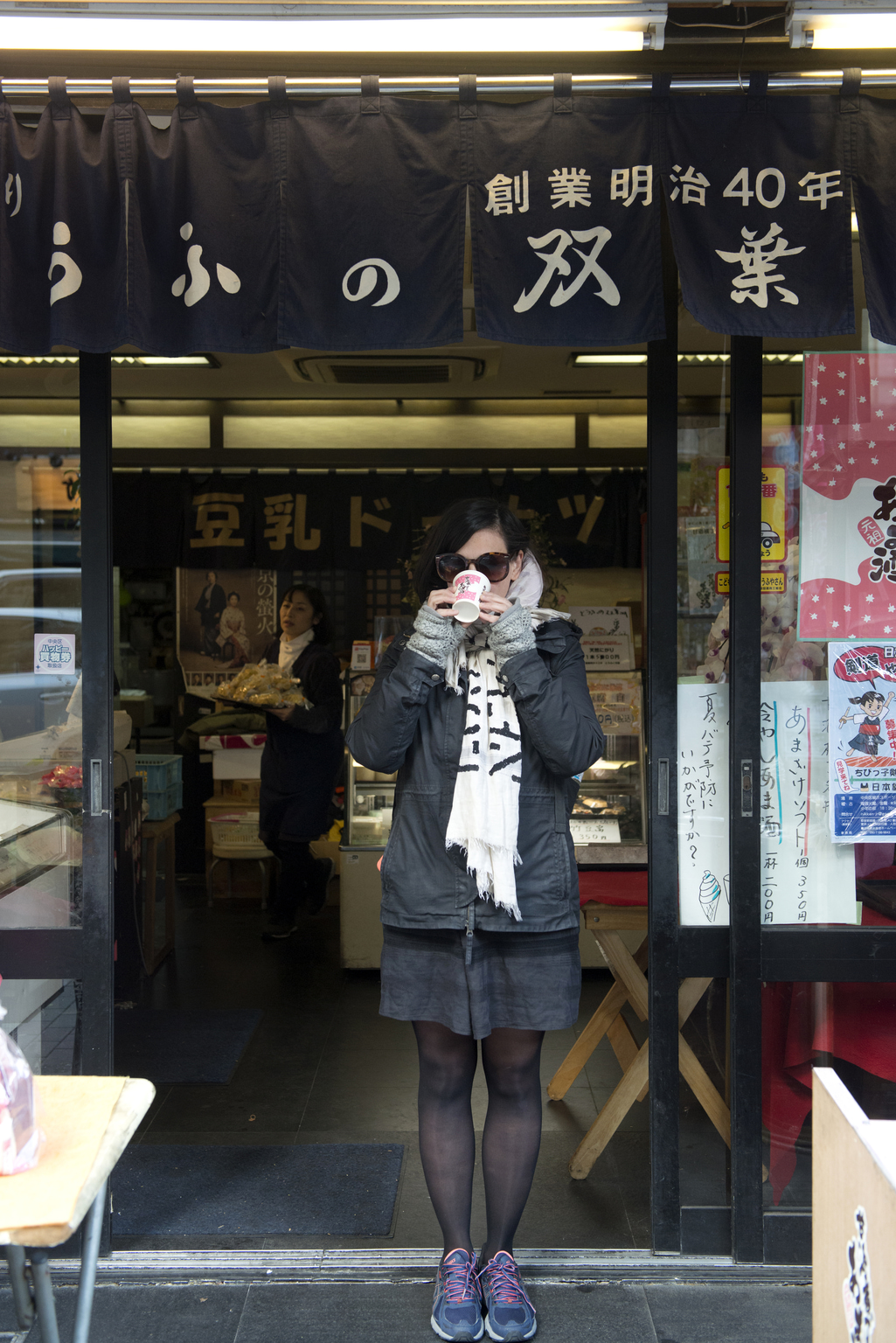
Sipping amazake at Futaba Tofu in Nihonbashiningyocho, Chuo City.
A Vegetarian Take on Kaiseki
No trip, of course, would be complete for a chef if they couldn’t step inside a kitchen, and Cohen got her chance to do so when she joined the seven female kaiseki chefs at Tsurutokame. Together they created a 12-course, all-vegetarian meal that combined North American and Japanese taste profiles for a variation on the classic kaiseki menu that was playful, creative and delicious.
A celebration of the seasons, the Zensai, or small appetizer, was a rich walnut tofu topped with grated chestnut in a tangy miso and vinegar sauce. The usual sashimi course substituted yuba (tofu skin) topped with okura, Okinawaan umi budo (sea grapes) and tiny iridescent shisho flowers. In places where fish or meat usually played a role, tofu, mushrooms, fruits, gingko nuts and grains took their place.
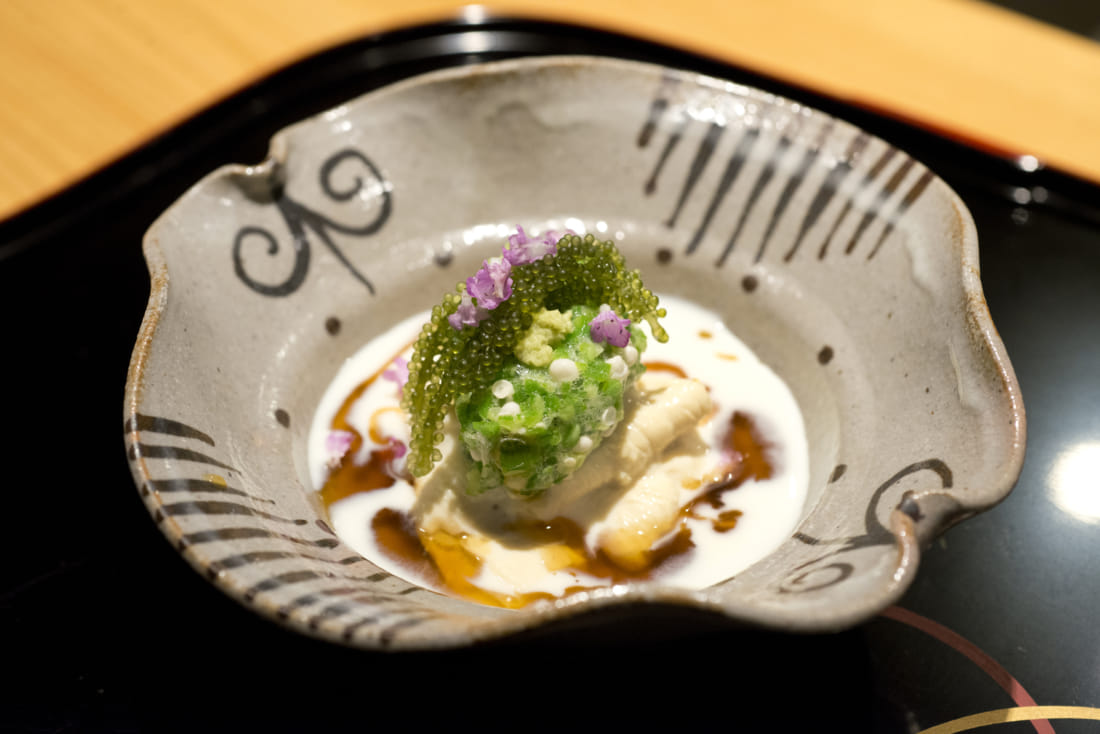
Vegetarian sashimi course with yuba at Tsurutokame.
Land of Opportunity
Cohen also offered up two signature dishes from Dirt Candy – a mushroom mousse and a carrot slider – using king oyster mushrooms and Kyoto carrots, respectively. It was an exciting platform for exploring flavor and place through vegetables.
“It’s a piece of where you are,” Cohen said. “Here, for example, it’s so much smarter to use the king oyster instead of the Portobello because that tastes so American. The king oyster, though, are of Japan. It all starts to fit together.”
While Cohen found a number of vegetarian and vegan options in Tokyo, she also saw vast opportunity for someone with the passion and determination to make it a reality.
“It’s a Wild West,” Cohen observed of the vegetarian and vegan restaurant possibilities in Tokyo. “I think there are so many ways it could go. There’s so much of the food that is so translatable that I think somebody just has to want to do it. The field is really wide open.”
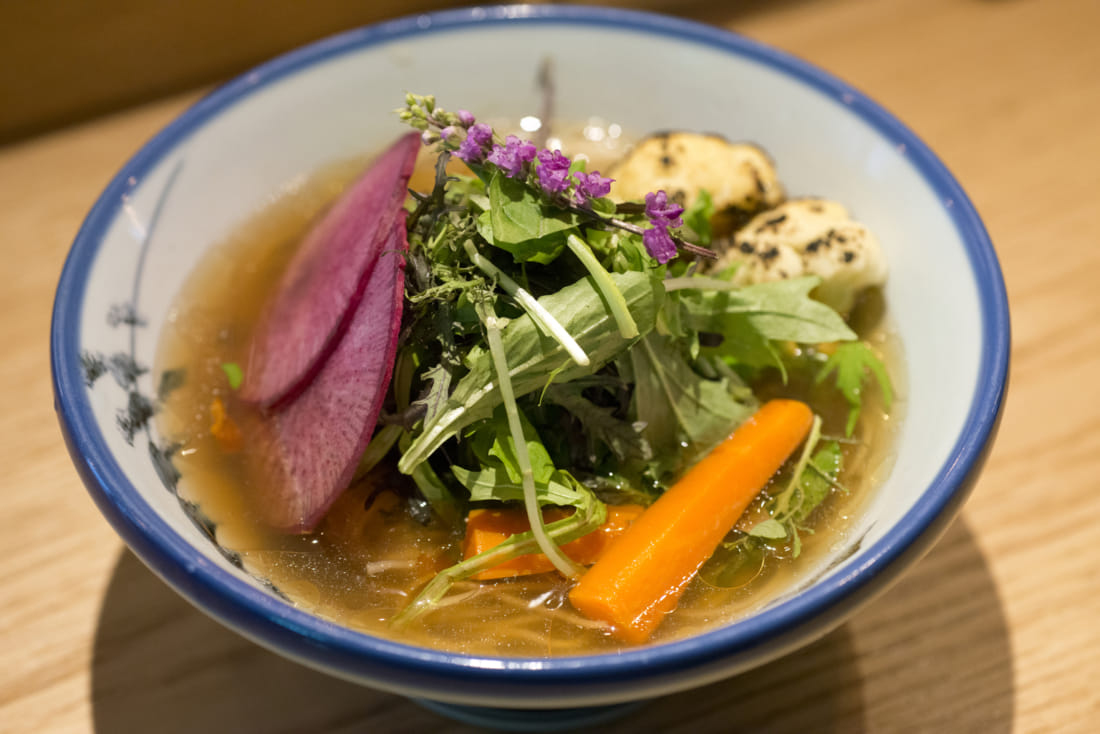
Vegetarian ramen at Afuri Ramen.
Photos by Michael Harlan Turkell

